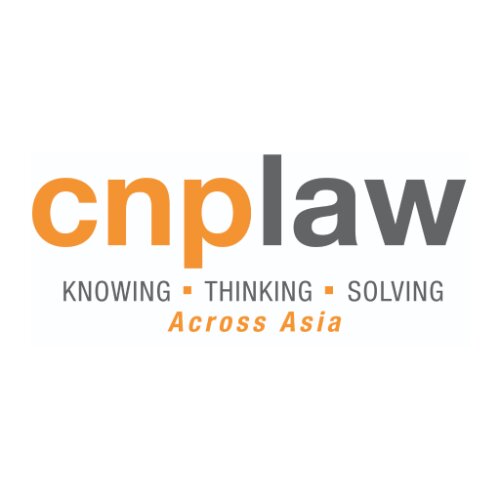Best Lawsuits & Disputes Lawyers in City Hall
Share your needs with us, get contacted by law firms.
Free. Takes 2 min.
List of the best lawyers in City Hall, Singapore
Singapore Lawsuits & Disputes Legal Articles
Browse our 2 legal articles about Lawsuits & Disputes in Singapore written by expert lawyers.
- Mediation: Keeping disputes out of court
- To all business owners, managers, and executives. You start your business. You have a dispute. One thing that you will definitely regret in such a case is not having a mandatory Mediation Clause in your agreements.Singapore is at the forefront of the movement to encourage mediation instead of more abrasive... Read more →
- Corporate Tip – Shareholder’s Agreement
- I started my law firm renting desk space at a very kind lawyer’s office. He was my first boss in Law, Mr Alain A Johns of Alain A Johns Partnership. I was his intern for two months in 2006. We were having coffee one day in late 2017 when I... Read more →
About Lawsuits & Disputes Law in City Hall, Singapore
In Singapore's City Hall, just as in the rest of the country, lawsuits and disputes are handled in accordance with Singapore’s civil justice system. The process encompasses everything from small claims to complex commercial litigations. The Civil Procedure Code (CPC) and the Rules of Court chiefly guide this field of law. Cases are typically handled in the State Courts or the Supreme Court, depending upon the nature and extent of the claim or lawsuit.
Why You May Need a Lawyer
Hiring a lawyer becomes indispensable when the complexity of the lawsuit or dispute pushes beyond your understanding or the amount at stake is substantial. Lawyers can accurately interpret the law, gather necessary evidence, negotiate settlements, represent you in court, and help protect your rights. Situations where you might need a lawyer include breach of contract, property disputes, defamation suits, tort claims, and equity suits among others.
Local Laws Overview
The relevant laws in Singapore for lawsuits and disputes are primarily covered under the Civil Law Act, the Civil Procedure Code, and the Rules of Court. Singapore employs an adversarial legal system where the judge acts as a neutral arbitrator. Its procedural law is strongly modelled on English law, and the implicated parties primarily dictate the progression of the lawsuit. Litigation usually commences with the filing of a writ of summons or originating summons. The Limitation Act also sets limitation periods after which certain actions cannot be brought to court.
Frequently Asked Questions
1. What qualifies as a civil dispute?
Civil disputes typically involve conflicts between individuals or organisations relating to their legal duties and responsibilities towards each other. They can range from personal injury cases to disputes over contracts, properties, or estates.
2. What are the channels to resolve disputes in Singapore?
There are generally three channels to resolve disputes in Singapore: litigation, arbitration, and mediation. Your lawyer can advise you on the best avenue based on the specifics of your case.
3. How long does the civil litigation process take in City Hall, Singapore?
The duration of the civil litigation process may vary significantly depending on the complexity of the case, the number of parties involved, and the efficiency of the court. It can take several months to several years.
4. Can I represent myself in a civil case?
Yes, individuals have the right to self-representation in Singapore's legal system. However, legal procedures can be complex, and professional legal advice is generally recommended.
5. Is there a limitation period for filing a civil suit?
Yes, the Limitation Act governs the limitation periods for various types of actions. For example, for a contract or tort dispute, you generally have six years from the date of the cause of action to file a suit.
Additional Resources
The State Courts and the Supreme Court websites provide a wealth of information relating to the process of civil litigation in Singapore. The Law Society of Singapore and the Ministry of Law also provide useful resources for understanding the law better. Furthermore, Pro Bono Services Office and Community Justice Centre offer legal aid services for those who can't afford their own representation.
Next Steps
If you believe you need legal assistance for a lawsuit or a dispute, it's advisable to consult with a lawyer or a law firm specialising in civil litigation. They can provide a preliminary assessment of your case, advise you on the applicable laws and procedures, potential costs, and next steps in the process.
Lawzana helps you find the best lawyers and law firms in City Hall through a curated and pre-screened list of qualified legal professionals. Our platform offers rankings and detailed profiles of attorneys and law firms, allowing you to compare based on practice areas, including Lawsuits & Disputes, experience, and client feedback.
Each profile includes a description of the firm's areas of practice, client reviews, team members and partners, year of establishment, spoken languages, office locations, contact information, social media presence, and any published articles or resources. Most firms on our platform speak English and are experienced in both local and international legal matters.
Get a quote from top-rated law firms in City Hall, Singapore — quickly, securely, and without unnecessary hassle.
Disclaimer:
The information provided on this page is for general informational purposes only and does not constitute legal advice. While we strive to ensure the accuracy and relevance of the content, legal information may change over time, and interpretations of the law can vary. You should always consult with a qualified legal professional for advice specific to your situation.
We disclaim all liability for actions taken or not taken based on the content of this page. If you believe any information is incorrect or outdated, please contact us, and we will review and update it where appropriate.
Browse lawsuits & disputes law firms by service in City Hall, Singapore
City Hall, Singapore Attorneys in related practice areas.














